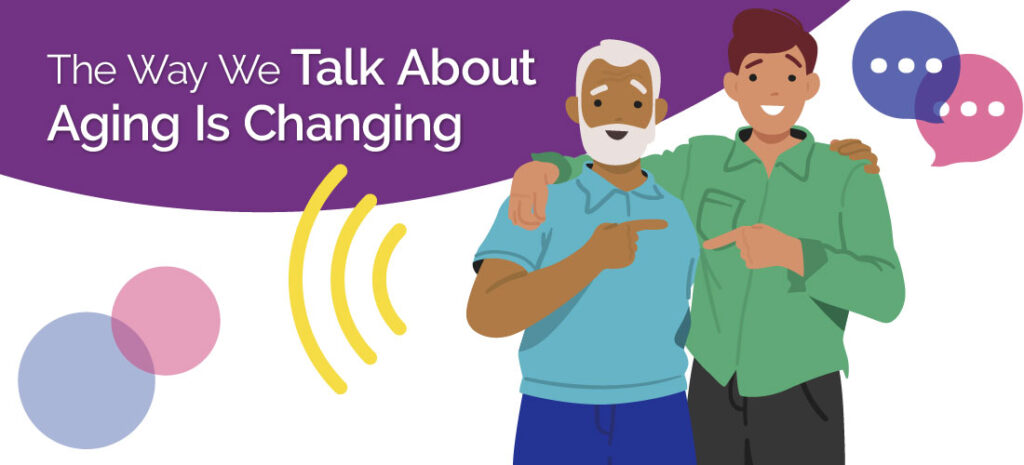
The conversation around aging is evolving rapidly—and as home care agency owners, we need to evolve with it. Unfortunately, stereotypes about older adults still dominate mainstream media, commercials, and popular culture. Far too often, older adults are depicted as frail, forgetful, and unable to make decisions for themselves. These outdated portrayals reinforce harmful assumptions, fueling ageism that negatively impacts older adults in their daily lives.
At corecubed, we recognize that as home care professionals and marketers, we have the power—and responsibility—to reshape how we talk about aging. By thoughtfully choosing the words we use, we can challenge harmful stereotypes and position home care as a respectful, empowering solution that honors older adults’ dignity, autonomy, and value.
Here’s how your home care agency can shift toward more inclusive, respectful, and empowering language about aging:
Help Older Adults Maintain Decision-Making Power
It’s common for family caregivers, adult children, or grandchildren to assist older adults in making important care decisions. However, marketing language often mistakenly centers solely around family members, unintentionally excluding older adults from conversations about their own care.
Instead of phrases that imply an older adult belongs to someone else—such as “your aging loved ones” or “your senior parent”—choose language that acknowledges older adults as autonomous individuals. For example, directly addressing older adults themselves as active participants in their own care emphasizes respect and preserves their agency in decision-making.
Avoid Marginalizing or Infantilizing Language
Older adults bring decades of experience, wisdom, and personal achievements to their interactions with your agency. Yet too often, marketing materials unintentionally speak to older adults as if they have limited capacity, infantilizing them in ways that diminish their accomplishments and capabilities.
Always assume older adults possess valuable knowledge and varying degrees of expertise. For instance, when writing about aging-related technology, avoid assuming older adults are unfamiliar or intimidated. Instead, acknowledge their varying levels of comfort and experience. By starting from a position of respect, you’ll create marketing content that genuinely resonates with your audience and affirms their dignity.
Stay Flexible: Language Evolves Constantly!
Language surrounding aging is continuously evolving, and it’s important to stay current with terms preferred by older adults themselves. According to recent research, terms like “older adult” or “older people” are now overwhelmingly preferred to more dated descriptors such as “senior” or “elderly.” While using SEO-friendly keywords like “senior care” and “elderly care” remains strategically important for online visibility, integrating preferred terms into your overall messaging signals respect and inclusivity.
In fact, according to the FrameWorks Institute, how we frame aging significantly shapes public perception. Using respectful and empowering language shifts societal views and supports positive aging narratives.
Partner With corecubed to Refine Your Messaging
Thoughtful communication about aging positions your agency as a trusted resource for older adults and their families. At corecubed, we specialize in helping home care agencies craft messaging that is inclusive, respectful, and highly effective in connecting with your audience.
Our team can help you tell your agency’s story with dignity, clarity, and genuine respect for older adults. From developing compelling website content to crafting messaging strategies that align with current best practices, corecubed ensures your marketing efforts positively reflect your agency’s values and build meaningful connections.
Ready to refine your home care agency’s messaging around aging? Contact corecubed today at 800.370.6580 to discuss how we can help you communicate clearly, respectfully, and effectively with older adults and their families.
